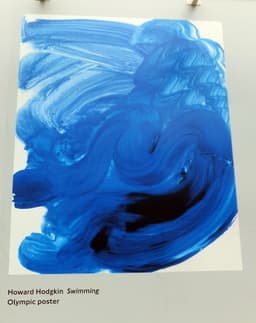
Howard Hodgkin
@howard-hodgkin
Howard Hodgkin: A Life in Intimate Abstraction
Howard Hodgkin stands as one of the most distinctive voices in contemporary British art, whose vibrant, emotionally charged paintings transformed abstract art during the late twentieth century. Born in London in 1932, Hodgkin developed a revolutionary approach to abstraction that prioritized feeling over form, creating works that captured the essence of personal encounters and emotional experiences rather than depicting literal subjects.
Hodgkin's artistic style defied easy categorization, occupying a fascinating space between abstraction and representation. He often began with memories of specific moments, conversations, or relationships, translating these intimate experiences into explosive bursts of color and gesture. His paintings radiate warmth and sensuality, achieved through his distinctive technique of working on unconventional supports, including wooden frames that became integral to the composition itself. This boundary-breaking approach challenged viewers to reconsider what abstraction could express.
Throughout his career, Hodgkin achieved significant recognition, including the prestigious Turner Prize in 1985, the first figurative painter to receive this honor. Notable works like "Indian View" and "Green Thoughts" exemplify his ability to evoke mood and memory through chromatic intensity and gestural marks. His travels, particularly to India, profoundly influenced his aesthetic, enriching his palette with exotic warmth and complexity.
Beyond individual paintings, Hodgkin fundamentally reshaped contemporary art discourse by demonstrating that abstraction could remain deeply personal and emotionally resonant. His legacy inspired countless artists to explore subjective experience through non-representational means. Hodgkin's death in 2017 marked the end of an extraordinary artistic journey, yet his revolutionary vision continues inspiring artists and captivating audiences worldwide, proving that abstraction remains eternally capable of profound human expression.